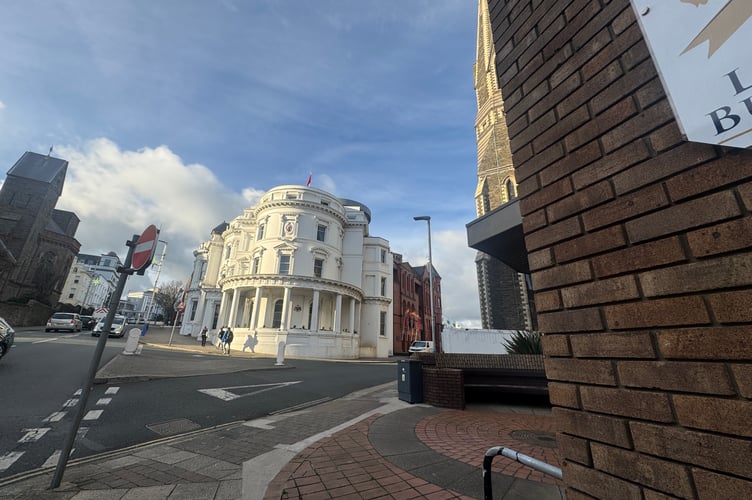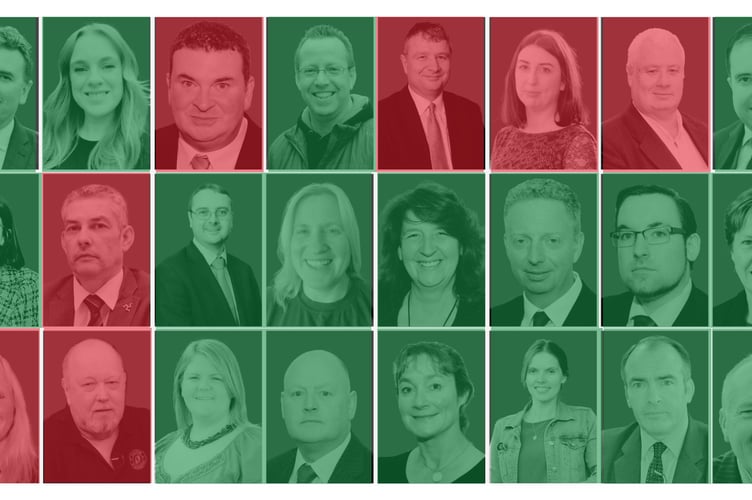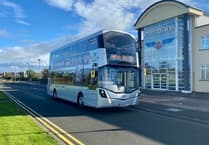Last week, Tynwald approved a significant increase in the Isle of Man’s minimum wage, following a lengthy and at times heated debate that concluded late on Thursday night.
The motion, brought forward by Enterprise Minister Tim Johnston, will see the minimum wage rise to £13.46 per hour from April 2026.
It also establishes a new mechanism linking the rate to 66% of median earnings, a formula that received parliamentary backing earlier this year.
Mr Johnston said the move was designed to give both workers and employers more predictability.
‘This approach provides greater clarity and increased notice for both individuals and businesses than in previous years,’ he told Tynwald, arguing that certainty was key to supporting long-term business planning and fair pay.
The motion was seconded by Treasury Minister Dr Alex Allinson, who said the change reflected the island’s broader economic performance and the need to support residents with the cost of living.
The rise represents a 9.9% increase on the current minimum wage, a proposal that had earlier been rejected by the Minimum Wage Committee, which warned that such a steep rise could harm employment levels, fuel inflation, and weaken business competitiveness.

Despite these warnings, members of both chambers ultimately supported the government’s proposal.
After a debate lasting more than two hours, the House of Keys voted 17–7 in favour, while the Legislative Council voted unanimously 8–0.
But how did your MHK vote?
The seven against the increase were: Ms Edge (Onchan), Mr Crookall (Glenfaba and Peel), Ms Lord-Brennan (Glenfaba and Peel), Mr Moorhouse (Arbory, Castletown and Malew), Mr Peters (Middle), Mr Thomas (Douglas Central) and Mr Wannenburgh (Douglas North).
All eight members of the Legislative Council voted for the increase, ensuring its passage into policy.
Despite its passing, the decision has drawn sharp criticism from some quarters of the business community.
The Isle of Man Chamber of Commerce, representing more than 450 businesses employing over 20,000 people, said it was ‘deeply disappointed’ by the outcome.
‘The decision ignored repeated warnings from employers across multiple sectors,’ the Chamber said in a statement, adding that the increase could have a ‘damaging impact’ on smaller firms already struggling with rising operational costs.
Two amendments tabled during the debate were also defeated.
Douglas North MHK John Wannenburgh proposed that Treasury should bring forward plans to raise the personal tax allowance at the same time as the minimum wage rise, while Ramsey MHK Lawrie Hooper suggested a stepped increase, to £13 an hour in April 2025, rising again to £13.76 in October 2025, before aligning with the Living Wage from 2027.
Mr Hooper argued that his proposal would strike a fairer balance for employers and employees, saying it followed the spirit of previous government policy.
But neither amendment gained sufficient support.
Arbory, Castletown and Malew MHK Jason Moorhouse warned that many small businesses were already struggling to cope.
‘Businesses are closing their doors and blaming costs,’ he said, cautioning that further pressures could force more closures.
In response, Minister Johnston reiterated that the new framework would offer ‘certainty’ and ensure a fairer, more consistent approach to wage setting in future years.

.png?width=209&height=140&crop=209:145,smart&quality=75)
.jpg?width=209&height=140&crop=209:145,smart&quality=75)

